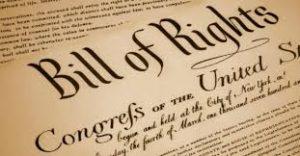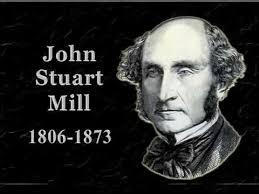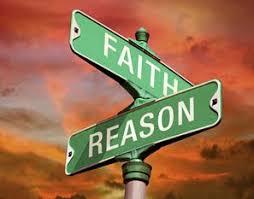
American “conservatism” has become a perverted travesty of its former self. Writer George Will, in his book, The Conservative Sensibility, offers a bracing corrective. Discussed in a terrific interview with the New York State Writers Institute’s Mark Koplik.
Both Will and I came to conservatism in 1964 with Barry Goldwater. And left with Trump. Mainline “conservatism” is no longer a philosophy, it’s a tribal cult.

Will begins by differentiating between two kinds of sociopolitical divisions. One — the healthy sort — involves ideas. Differing interpretations of history and understandings of the world, leading to differing policy perspectives. Those can be argued, and having such arguments is a very positive American thing. If you don’t like arguments, you’re in the wrong country. And you shouldn’t see a disagreement over ideas as an attack on your personhood.
One thing I’ve noticed is that blog comments by Trump supporters almost never actually advance arguments. Rarely grapple substantively with opposing points or facts. Instead they’re mainly bald (and usually irrelevant) assertions and ad hominem disparagement.

This introduces the second, unhealthy kind of division, tribalism. Where it’s all us-against-them, the individual subsumed into a tribal identity. We are all embedded in social, cultural settings, but a person is much more than that, Will said. He does recognize that attachments to subgroups are a normal part of life. But it’s another thing when that becomes the basis of your personal identity, your tribe. Especially pernicious when it incorporates a set of political stances. Will spoke of “furnishing” one’s mind by swallowing such precepts whole, so you never have to think about things for the rest of your life. American “conservatism” has become that kind of tribal cult (in thrall to a very bad guru).
Yet, says Will, the whole point of modernity is the contrary, to rescue individuality from being a passive plaything of circumstances. That is, to rescue human agency. We have the free will to change our destiny. Will called the opposite view “historicism.” That’s a nod to Karl Popper, whose 1945 book The Open Society and its Enemies similarly argued that we are not prisoners of some historical inevitability.
So what are the positive ideas constituting George Will’s conservatism (and my own)?

He saw them as actually America’s foundational ideas, the nation “conceived in liberty” as Lincoln put it. Democracy, Will said, is a process; liberty a condition, which comes first. Government does not give us rights, but is our creation as their guardian. Thus it should be inherently limited — strong enough to protect our rights but not so strong as to threaten them. The Bill of Rights was enacted to put certain things beyond the reach of majorities.
Will strongly distinguished American conservatism from its European antecedents, rooted in Edmund Burke’s critique of the French Revolution and defense of hierarchies, in opposition to egalitarianism and the dynamics of change. Thus “conserving” the status quo. This has always been a misnomer as concerns the American version, at least since the 1950s, opposing much of the prevailing dispensation. Will says that what it wants to “conserve” is America’s founding principles, while not otherwise being hostile to change. It celebrates the free market precisely because of the spontaneous “churning” it produces, making for progress and upward mobility. Unlike the stagnation when government controls everything (the extreme example being the old Soviet Union).

Thus Will correctly traces American conservatism not to Burke but rather to the classical European liberalism of thinkers like John Locke and John Stuart Mill.* The aim is to promote individualism while also having a commodious civic life. The drama of modern politics is people disagreeing about “the good;” the challenge is to accommodate such diversity, so we can pursue differing visions but still coexist.
Asked whether his stance is “libertarian,” Will said he’s “libertarian-ish” (the pure doctrine having untenable implications). Will characterized his moderated libertarianism as a common sense approach that practically everyone actually embraces. The key idea being that if government tells us what to do, it ought to have a strong reason (consistent with its remit of protecting us from each other while maximizing freedom).

But none of this has much to do with what calls itself “conservative” in today’s America: an incoherent conceptual mess. Nor of course does it resonate on the big-government censorious left. The sound structure of classically liberal ideas that Will lays out is a homeless vagabond in the nation’s current political landscape.
Will’s conservatism entails an ethos of carefulness, with respect for facts and reality, also obviously gone out the window under Trump. In favor of “alternative facts” one prefers to believe. Of course that’s not exclusive to the right; Will speaks of a left-wing academic culture with a “high ratio of certainty to information.” But a salient example on the right is the trope of America founded as a “Christian nation.” That’s not just historically false, here again it’s today’s conservatives turning upside down what our founding principles actually were.*
Will in contrast forthrightly calls himself an atheist. And morality, he says, comes from philosophy, not religion. I would add that it’s actually encoded in our biology; and philosophy explicates moral principles we already feel in our bones. We don’t, says Will, need anything from the supernatural (which doesn’t exist anyway).

Indeed, that can only be a source of moral confusion. American conservatives are steeped in religion, and religion’s divorcement from rationality and reality set the stage for their going off the rails morally with Trumpism. That’s how we got children ripped from mothers’ arms and put in cages.
* “Liberalism” still has that meaning in Europe, different from what Americans call “liberal” politics. In fact, the U.S. left opposes that kind of classical liberalism, labeling it “neo-liberal” as a pejorative.
** I’ve discussed the history here: https://rationaloptimist.wordpress.com/2018/08/13/was-america-founded-as-a-christian-nation/
